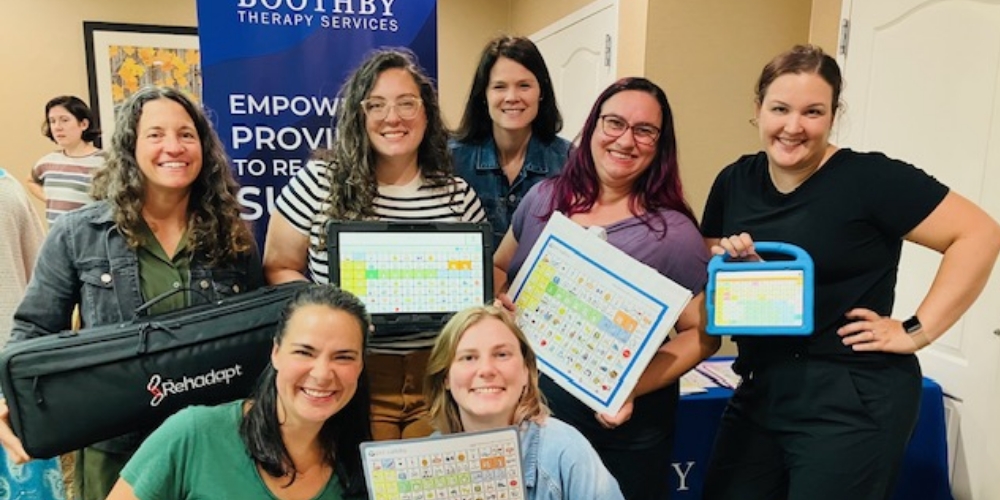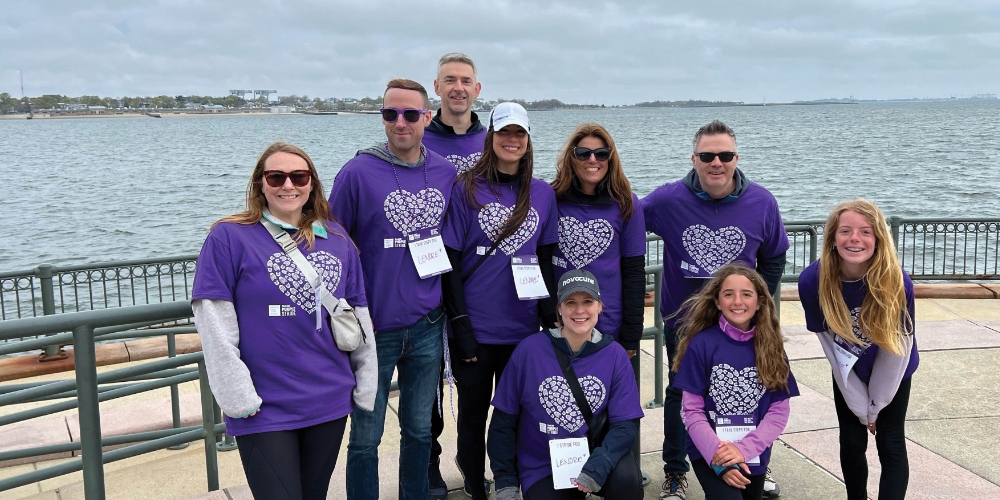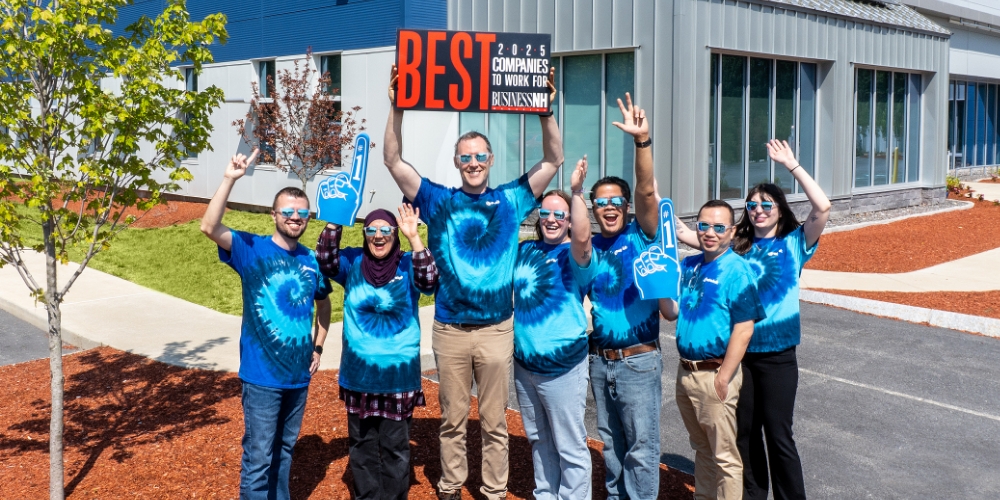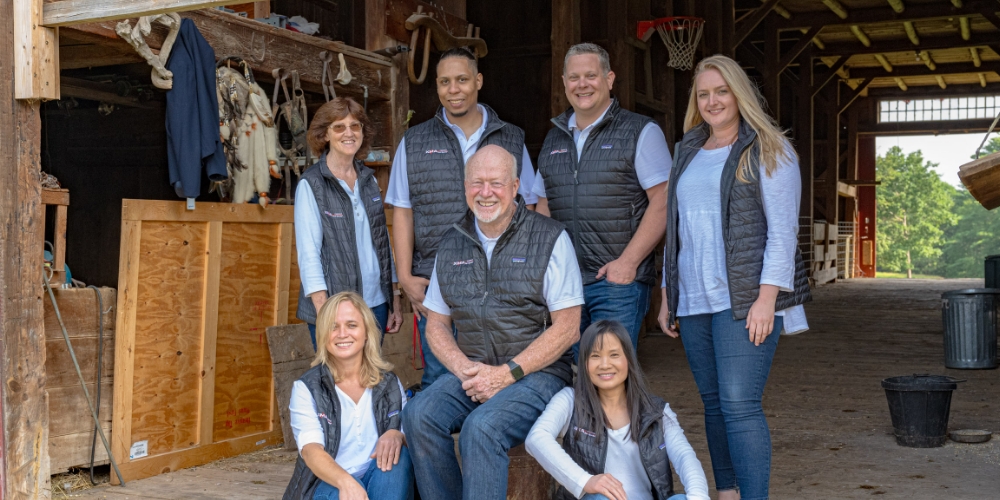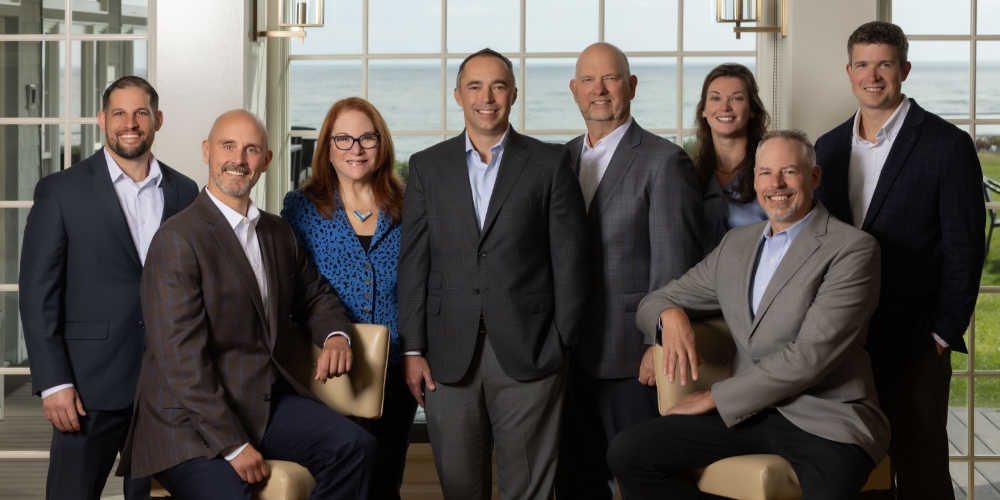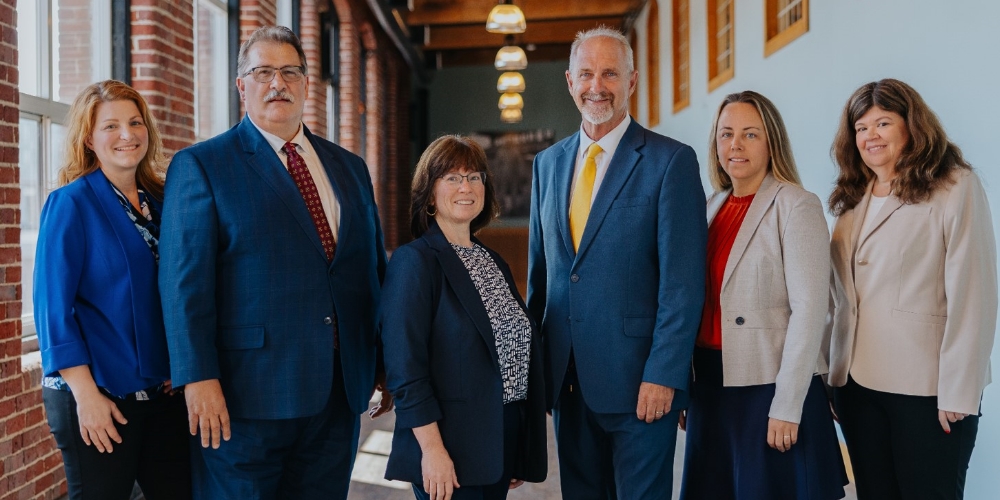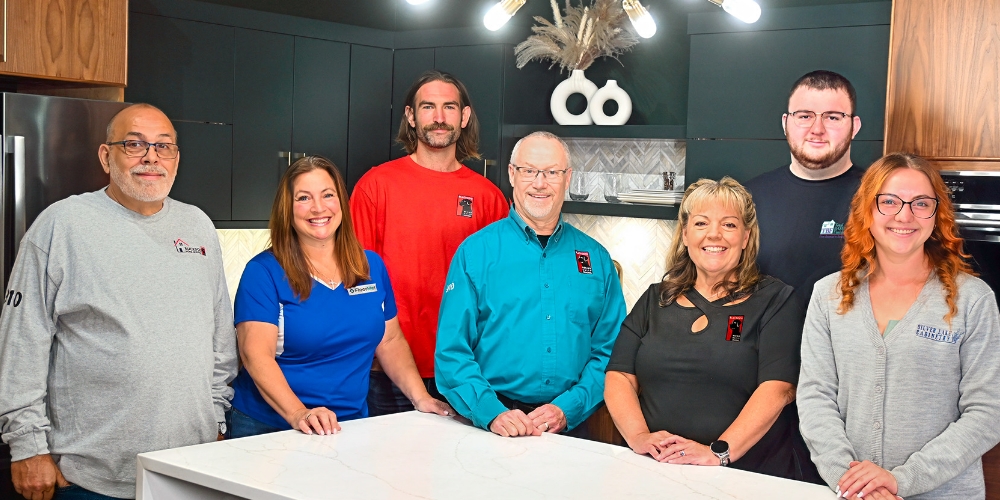
In late July, The Farnum Center, a nonprofit addiction treatment center run by Easterseals NH & VT, closed its inpatient recovery services in Manchester. The closure of one of the state’s longstanding and accessible treatment programs came after years of financial strain, rising competition from for-profit centers and a failed attempt to sell the facility. Stakeholders warn things will get worse as Medicaid changes and other policy shifts threaten the stability of a system built to serve a vulnerable population fighting addiction.
This closure comes after years of progress in reducing opioid overdose deaths and expanding access to substance use disorder care. Overdose deaths in the state have fallen by nearly one-third in the past year and by half since a peak of 490 in 2017. Experts credit that progress to increased naloxone (Narcan) availability, investments in recovery resources, and the creation of the state’s Doorway system that connects people seeking help with substance abuse to resources and other services made possible through the Granite Advantage Health Care Program, NH’s version of Medicaid expansion. Through Medicaid expansion, over 7,500 people accessed substance abuse treatment in 2024.
“We built an infrastructure that didn’t exist before,” says Jake Berry, vice president of policy at New Futures in Concord, a nonprofit advocating for childhood supports, health insurance, substance use treatment, and prevention programming throughout the state. “The Granite Advantage supported the creation of the Doorways, recovery community organizations, and drug courts in nearly every county. That was a game-changer.”
Stakeholders warn that without urgent adaptation, the system could slip, leaving vulnerable residents without the care
they need.
The closure of The Farnum Center means the loss of 27 detox and 36 residential beds for Farnum’s in-patient program, and underscores a larger pattern of nonprofit, Medicaid-funded providers who are struggling to stay open while new, for-profit operators target patients with commercial insurance. The Farnum outpatient program on Lake Avenue remains operational, but the loss of detox and inpatient services is a major blow.
“There’s been a proliferation of sober homes and over 1,000 recovery beds in the state now,” says Maureen Beauregard, president and CEO of Easterseals NH & VT. “For-profit centers have outpatient services and can better manage costs. We’ve always focused on those who need care the most, regardless of their ability to pay.”
While the growth of for-profit recovery programs and housing has improved access for some, it leaves gaps for low-income or uninsured individuals, precisely the population Farnum has long served. In 2023, the average cost for a residential in-treatment program in NH was $42,500 per month according to Zinnia Health. The average cost of sober homes, without treatment, ranged from $1,500 to $2,000 per month.
Meanwhile, the overall demand for care has surged. Between 2017 and 2022, the number of Medicaid enrollees in NH diagnosed with opioid use disorder more than doubled from 6,163 to 13,279, according to the NH Department of Health and Human Services. That spurred the creation of expanded access to outpatient therapy, recovery supports, and medication-assisted treatment in the state.
In 2021, an estimated 2.5 million people in the U.S. aged 18 and older had an opioid use disorder, yet only 36% of them received any substance use treatment, and 22% received medications for opioid use disorder, according to the National Institute of Health. The number of people in NH with a substance use disorder (which includes alcohol and drugs) was 230,323 or 16.5% of the population. Of that number 57,000 received treatment. These gaps, advocates warn, could widen further as providers face stagnant reimbursement rates and looming questions about Medicaid’s future scope and funding.
Cracks Forming
Since its inception in 2014, Medicaid expansion serves individuals aged 19 through 64 with incomes below 138% of the federal poverty level, or $21,597 for a household of one. As of May 2025, roughly 59,000 Granite Staters were enrolled in the expanded program, about one-third of the state’s total Medicaid population of 180,000. More than 25,000 received mental health care through the program.
Changes to Medicaid, both at the state and federal levels, could leave tens of thousands without coverage and providers with an unsustainable volume of uncompensated care. A significant driver of uncertainty is the state’s 2026–27 budget, which introduces new work requirements for Granite Advantage recipients. Beginning in 2026, enrollees will need to prove they are working up to 100 hours per month, receiving job training, or participating in community projects to maintain coverage. Additionally, some Medicaid and Children’s Health Insurance Program (CHIP) recipients will face premiums and co-pays up to $230 per month for a family of three earning around $68,000, with $4 co-pays for medications.
“Around 65% to 70% of Medicaid recipients are already working,” Berry says. “But meeting the new reporting requirements, especially during times of crisis, is a major hurdle. People could easily fall through the cracks.”
Providers are also wary of proposed changes to federal reimbursement rates, which could reduce what the federal government pays NH for Medicaid costs. The NH Fiscal Policy Institute estimates the state could lose up to $493 million annually. If that happens, a “trigger law” would automatically repeal the Granite Advantage program within 180 days unless lawmakers intervene.
Kate Frey, vice president of advocacy at New Futures, says the state’s success depends on a holistic strategy. “It takes a lot of tools in the toolbox,” she says. “Prevention, treatment, recovery, harm reduction, public health networks, and data infrastructure all work together. When you start cutting back on any piece, the whole system is at risk.”
Patricia Carty, CEO of the Mental Health Center of Greater Manchester, one of 10 community health centers across the state, shares that concern. Her center, which offers both mental health and substance abuse disorder treatment, provided $4.5 million in uncompensated care last year due largely to the Medicaid “unwind” that ended pandemic-era continuous coverage. The 10 centers combined provided $15 million in uncompensated care. She worries the upcoming work requirements could trigger another wave of disenrollment. “We provide whole-person care, with medication-assisted treatment,
licensed alcohol and drug counselors, peer support, and community outreach teams,” Carty says. “But we’re seeing growing uncertainty.”
“We’re safety net providers,” she continues. “If more people are disenrolled again, I’m not sure we can make it through a second time.”
About 85% of the Mental Health Center’s funding comes from Medicaid, and the percentage of uncompensated care has increased significantly as a percentage of Medicaid revenue over the past three years, going from 14% in FY2022 to 27% in FY2024. “This is hugely significant, given that Medicaid accounts for 86% of patient revenues and 62.5% of total revenue,” Carty says.
Carty and other providers are engaging in scenario planning, coordinating across agencies, and meeting regularly to track policy changes and funding gaps.
The Trump Administration’s restrictions on funding certain DEI initiatives is making it difficult to bridge those gaps. “Even small disruptions ripple quickly,” Carty says. “We’re seeing complications in areas like disparity impact statements, DEI compliance, and legal exposure, and funders can’t always fill the gap,” Carty says.
To prepare, mental health centers are working together more closely than ever. They’re tracking policy changes, identifying funding gaps, and sharing weekly updates across organizations. Carty’s team is asking questions like, “’If we lose this grant, then what?’”
Henry Och, CEO of Harbor Care, which serves low-income residents by providing affordable healthcare and housing as well as substance use services, says new redetermination rules scheduled to take effect in 2027 will require Medicaid eligibility to be reverified twice a year instead of once and could delay reimbursements and hurt access.
“That process takes time, specifically for federally qualified community health centers like us who are mandated to provide service regardless of people’s ability to pay,” Och says. “When an individual comes in and their insurance has lapsed, we still see them and this is uncompensated care we need to absorb.”
Beauregard of Easterseals points to the growing financial strain on organizations relying on state and federal funding sources. State resources, she explains, have not kept pace with the rising costs of treatment or the increasing demand for services. “It’s a hard time to be in a leadership position,” she says. “[At the Farnum Center], when we looked at our fiscal year, which runs from September 1 to August 31, we were underwater $1 million—and next year it was to be $2 million.”
One of the major drivers of that financial gap was the surge in uncompensated care, Beauregard notes, citing a stark shift in the makeup of Easterseals’ client base over the past decade. Easterseals once served a mix of individuals with Medicaid, private insurance, and no insurance, but now serves a majority who are uninsured. At Farnum, the percentage of clients covered by Medicaid or without any insurance jumped from 23% in 2014 to 83% as of June 2025.
“We would have loved to stay in business and have been a provider for those with Medicaid and the uninsured,” Beauregard says. “But no one’s lining up for the uninsured. Nonprofits just can’t compete with for-profit industries.”

State Opioid Grant
As NH prepares for changes to Medicaid eligibility tied to new work requirements, providers across the state are bracing for a surge in uncompensated care.
Stakeholders estimate losses in the millions as more people are at risk of losing access to healthcare coverage. At Harbor Care, Medicaid currently supports $7.36 million or 21% of its fiscal year 2025 budget, funding services such as its Federally Qualified Health Center, group homes, and a residential treatment center.
Carty underscores the issue. “To be clear, to date, there have been no Medicaid cuts,” she says. “We are preparing for the stated changes that will result in people without healthcare insurance, which then results in active patients in treatment with no healthcare insurance, which equals increased uncompensated care.”
To help stabilize local infrastructure, a new grant initiative aims to strengthen community-based efforts. Granite United Way has been tapped by the NH Department of Health and Human Services to oversee the statewide Opioid Abatement Community Grants Program, funded with $10 million over two years. Approved in June 2025 by Governor Kelly Ayotte and the Executive Council, the program will support prevention, treatment, and recovery programs with two tiers of funding: short-term grants up to $15,000 for urgent needs like training or equipment, and multi-year grants of up to $75,000 annually for longer-term projects.
“With nearly 100 years of experience in grantmaking, we understand what it takes to support successful projects in substance use prevention, treatment, and recovery,” says Nichole Martin Reimer, president and CEO of Granite United Way, in a statement. “This program is designed to be easy to access and responsive.”
Still, while the Opioid Abatement Grants are a proactive step towards bolstering local capacity, Carty says they are not a replacement for Medicaid coverage and don’t address a rise in uncompensated care as thousands of patients potentially lose insurance coverage.
Fewer Open Doorways
In Manchester, oversight of the local Doorway has shifted to Elliot Hospital in Manchester under a new two-year contract. Carty says coordination with Elliot and other local providers like WestBridge Recovery Center is key to making sure patients don’t fall through the cracks.
“They [Elliot’s Doorway] opened July 1 with weekday hours. We’re hoping they expand to a more robust schedule, but right now, people needing help outside those hours have to call 211,” she says, referring to the national service hotline connecting individuals that serves as a central point of contact for a wide range of needs, from basic necessities like food and housing to more complex issues like mental health and substance use.
To fill the void left by Farnum’s closure, Easterseals is coordinating with the state’s Doorway system to redirect patients and find new roles for displaced staff. “[The Doorway system] will be an integral part of defining care moving forward,” Beauregard says.
Challenges Compounded in North Country
In NH’s North Country, distance and isolation compound other challenges, says Greg Williams, substance misuse prevention coordinator for the North Country Health Consortium (NCHC), serving northern Grafton and Coos counties. NCHC is a regional partner under NH’s Bureau of Drug and Alcohol Services and Division of Public Health and provides community health worker training, mobile clinics, substance use prevention programs and coordinated recovery initiatives for rural populations.
Williams says the region’s first Narcan vending machine and drug takeback efforts have helped, but mental health needs are outpacing opioid-related concerns. “Substance use and mental health are tied together. The stress of not having housing or transportation is a major factor,” Williams says.
Other barriers, Williams notes, include a lack of mobile crisis teams and post-incident interventionists. He adds that some services provided in southern parts of the state don’t work as effectively in the north country due to a lack of funding and geographical barriers. He points to the state’s 211 rapid response system as an example. “If you’re in Littleton, that’s over an hour away from Colebrook. If someone’s coming an hour to get there that person needs to be paid for drive time. And that’s not a rapid response,” he says. “We’re kind of isolated up here and while some people crave that isolation it can present mental health issues and other challenges of access.”
Cuts to the Alcohol Fund
Meanwhile, cuts to the state’s Alcohol Fund further threaten the treatment ecosystem. Created in 2003 to fund prevention and recovery through 5% of liquor profits, the fund is now supported by general fund dollars. This $1.2 million annual cut has advocates like Frey at New Futures worried. “This fund was created knowing that if we sell alcohol at the side of the road, there’s going to be some unintended consequences,” Frey says.
During the 2025 budget cycle, lawmakers considered using opioid abatement settlement dollars—roughly $264 million over the next 15 years—to replace liquor revenue in the Alcohol Fund. But Frey argues that would’ve undermined the fund’s flexibility. “The work that we do through the Governor’s Commission is not just alcohol abuse or opiate-related. It’s all substances,” she says. The proposal was ultimately rejected by the Senate.
By law, the state must allocate 5% of gross liquor profits to the Alcohol Fund. This would have amounted to $10.7 million annually for the 2026–27 biennium. However, the final budget package signed by Gov. Ayotte in June includes just $9.5 million per year.
“Even though it’s a relatively small shortfall, it’s the structure that worries us,” Frey explains. “We’re not just worried about today. We’re worried about what happens two years from now when that precedent has been set. My worst fear is that we go back 10 years in time.”
Looking ahead, Carty says the state must act quickly to preserve the substance abuse disorder infrastructure that has taken years to build. “It’s not fiscally responsible to undercut mental health and addiction care,” she says. “It’s not morally responsible either. Our job is to prepare for whatever comes and keep showing up for the people who need us. We will face patients who have lost insurance or can’t afford premiums. And when people fall out of the system, it becomes harder and more expensive to bring them back in.”
Berry agrees. “Taking away insurance coverage doesn’t make people’s health needs disappear,” he says. “They just end up in emergency rooms, and that cost doesn’t go away, it just shifts, and everyone pays for it in the end.”
Beauregard says a key concern is whether people will lose Medicaid coverage. “It’s a state of limbo,” she says. Easterseals continues to run programs supported by Medicaid, including the Military and Veteran’s Campus in Franklin, NH’s first all-in-one facility for service members and their families. “That’s a part of our strategy and we’re hoping to be able to expand those services.”
Another major challenge, says Och, is the uncertainty around how new policies will be implemented. “There’s still a bit of ambiguity about how new measures are going to be operationalized,” he says. “Right now, we’re educating patients as best as possible and sharing knowledge and insight with community partners.”


